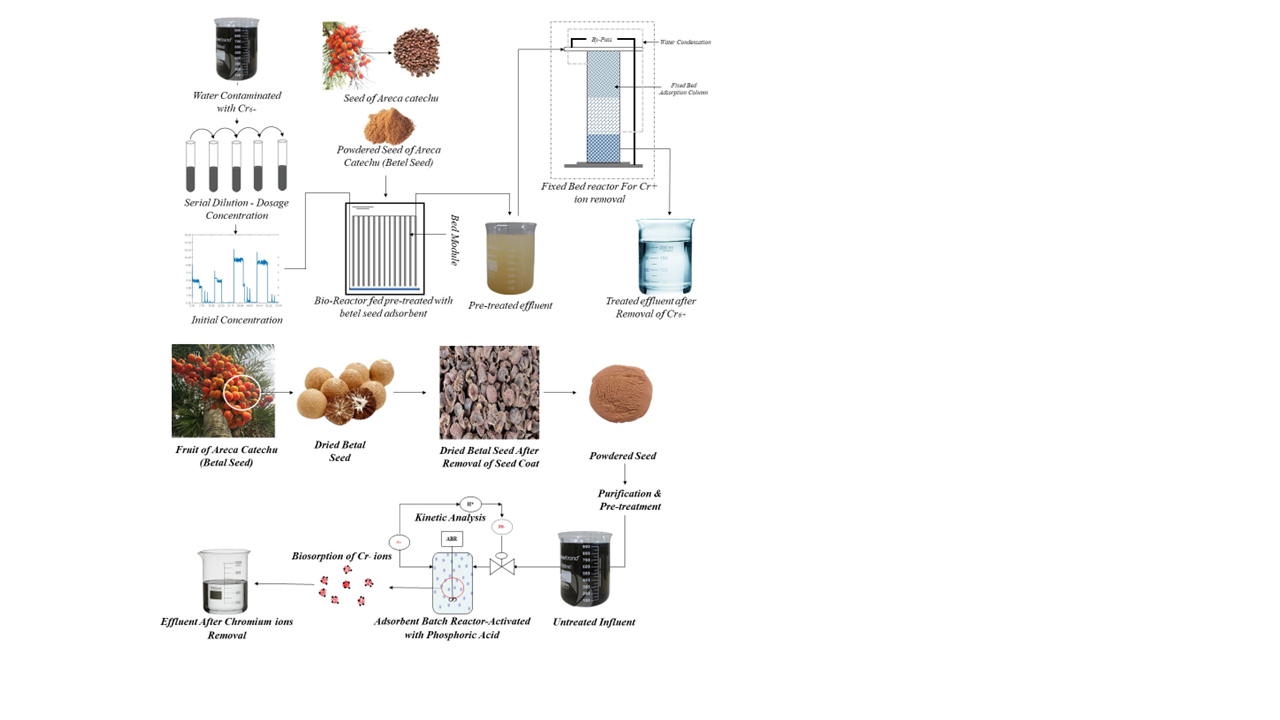- Cite article
- Download PDF
- Share article
- 3 Downloads
Hazardous metal chromium is used extensively in many different industrial processes and is commonly found in industrial effluents. Hazardous pollutants such inorganic anions, metal ions, synthetic xenobiotics, and others have contaminated ground and surface waters in India and other parts of the world as a result of continued industrial expansion and agricultural development. This study uses betel seed powder and a fixed bed reactor (FBR) technology running at room temperature to extract chromium (VI+) from a synthetic water environment. The fixed-bed research included significant experiments such as the development of breakthrough curves (including the effects of starting Cr (VI+) concentration, BSF size, and flow rate) and bed-depth service time (BDST) approach. Betel Seed Powder was used as a biosorbent to remove Cr (VI+) from aqueous solution. The effects of several variables, including bed height (2.5, 5.5, and 7.5 cm), flow rate of 40, 60, and 100 ml/min, were investigated at an influent pH of 6.5. It was shown that as bed depth, flow velocity, and starting concentration rose, so did the exhaustion time. The biosorptive capacity of betel seed powder in fixed bed reactor tests was approximately 8–9 times higher than that of betel seed powder in continuous stirred batch reactor study. For the removal of Cr (VI+) by BSF, the BDST method achieved a higher bed efficiency of 98.9% and was ideal. The biosorptive ability of BSP was found to be highly correlated with the initial Cr (VI+) concentration (No = 0.089Co).
